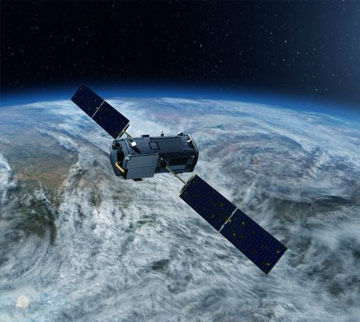There have been several space-related cybersecurity policy announcements recently. The European Space Agency (ESA) published the policy document “ESA Space Security: Shaping the future, protecting the present” in November 2023. This was submitted for the purpose of “protecting the universe.”[ing] It is an important piece of space infrastructure for ESA. In December 2023, the National Aeronautics and Space Administration (NASA) released the Space Security: Best Practices Guide to “strengthen mission cybersecurity efforts in both public and private space operations.” did.
This comes as US intelligence agencies have warned that the US space sector could be infiltrated by foreign spy agencies. In a directive issued in August 2023, the FBI, the National Counterintelligence Security Center (NCSC), and the Air Force Office of Special Investigations (AFOSI) require that certain foreign intelligence agencies take a series of actions, including cyberattacks and attacks. It issued a warning. Strategic investments targeting the space industry (including joint ventures and acquisitions). Regarding national security implications, the directive noted that cyberattacks and other means are aimed at “gathering sensitive data related to satellite payloads.” disrupt and degrade U.S. satellite communications, remote sensing, and imaging capabilities; reduce the United States' ability to provide critical services in emergencies; Identify vulnerabilities and target U.S. commercial space infrastructure during conflict. ”
Prior to this, in April 2023, a Cyberspace Solarium Committee (CSC) report ranked outer space as the 17th critical infrastructure, with the aim of adopting enhanced cybersecurity measures among satellite operators. It was advocated that it be identified as a field. The 24-page report provided stakeholder-specific recommendations, including prioritizing the development of codes and standards in collaboration with other like-minded partners.
Outer space security is equally important, yet the vulnerabilities and gaps in securing outer space have been less understood.
Cybersecurity itself has become a serious issue for policymakers in various regions, especially those who have embraced digitalization at a rapid pace in the post-corona era. Outer space security is equally important, yet the vulnerabilities and gaps in securing outer space have been less understood.But today we are becoming more interconnected.
Indeed, the November ESA document precisely highlighted the changing threat scenario. The report states, “The evolving threat landscape is changing not just to IT networks, but to the entire space ecosystem, including the space segment (satellites, launch vehicles, etc.), the ground segment (ground stations, ground networks, payload data ground segment, etc.)” ), and Signals in Space (SiS),” he adds, adding that as technology evolves, so too do threats. “Even small, organized hacker groups and hacktivists are in a position to identify vulnerabilities in space systems and launch hybrid attacks,” the document said. “It is driven by the level of recognition and name recognition.”
Additionally, the introduction of great power competition and rivalries has exacerbated the complexity of outer space. After the end of the Cold War ended competition between the United States and the Soviet Union, outer space seemed to be somewhat immune to great power rivalry for several decades. These days, however, space has become another realm in which this competition and competition plays out, with the balance of power in flux and seemingly unlikely to settle down any time soon.
There is also increasing interconnectivity between public and private sector actors, both of whom also work with the military, making the new space conditions extremely complex. As civilian, commercial, and military uses of space expand, disruption here could have a huge impact. The impact of any disruption will be across multiple areas, including disaster warning and response, directional data, and financial transactions. Military forces around the world will also be affected by their ability to collect intelligence, surveillance, and reconnaissance (ISR) data. This includes position, navigation, and timing (PNT) data, as well as the all-important Space Situational Awareness (SSA) data. All of this highlights the importance of ensuring the security of cyber systems in space.
The impact of any disruption will be across multiple areas, including disaster warning and response, directional data, and financial transactions.
Cyber-attacks in the form of hacking into space systems are a method that allows criminals to take control of critical systems and exfiltrate sensitive data, and they can also take over and feed false data. . Jamming and spoofing have become very attractive options for both nation states and criminals to wreak havoc and damage in space. Given the ease of implementation of these methods, low cost and plausible deniability are attractive attributes that motivate many perpetrators to pursue such options. Jamming and other cyber methods have been used very effectively in Russia's war against Ukraine. The attack on the Starlink SpaceX terminal is a case in point.
As analysts have pointed out, cybersecurity in the space context is essential for “sustainability.”[ing] Secure communication lines, precise navigation, and precise control. ”
The development of appropriate norms, standards, best practices and regulations to ensure better and effective cybersecurity measures to prevent interference with satellite operations has started to gain attention in recent years. However, as the 2022 World Economic Forum report points out, the challenge is for policies and corresponding regulations to “keep pace with technological advances”.
Clearly, this is not a problem unique to cyber/space security. While it may be relatively easy to develop regulations at the national level, this becomes a much greater challenge when looking at the landscape of global governance efforts. This is particularly difficult given the competition between great powers and the inability to reach consensus among them, which is a major impediment to the development of new rules. International partnerships, especially those involving like-minded partners, are important not only to develop new rules and measures, but also to develop technological defenses against cyber threats and space vulnerabilities.
This explanation was originally diplomat.
The views expressed above belong to the authors. ORF research and analysis is now available on Telegram. Click here to access our carefully selected content (blogs, long-form articles, interviews).


